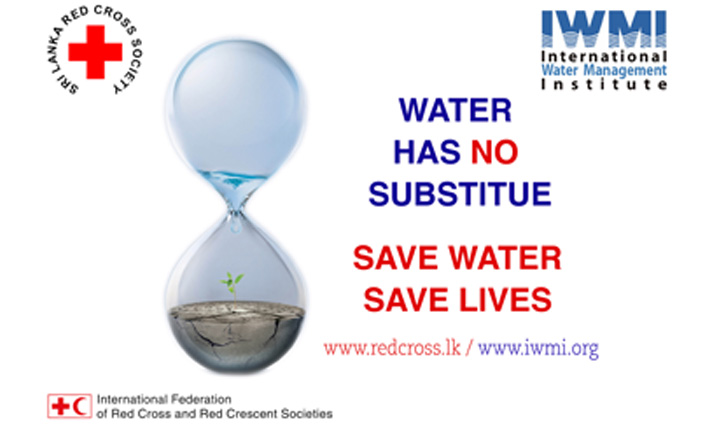Raising awareness on the importance of saving water
By Mahieash Johnney – IFRC Communications & Information Manager in Colombo.
20/03/2012 – Colombo, Sri Lanka: As we approach another World Water Day the margin between need for water and the availability of water has unfortunately has not narrowed, in fact it has widen in an alarming rate.
On Thursday (22nd March 2012) we will take a minute to think about this resource of life which we have taken for granted. Most of us turn on the tap and use what comes out of it for drinking,
Most of us turn on the tap and use what comes out of it for drinking, cooking, and washing ourselves and our belongings, without giving much thought to how much water is needed for other things, electricity, crop irrigation, landscaping, manufacturing, looking for natural gas, recreation, whatever.
This year’s theme is Water and Food Security.
There is much we can do to get the most from Sri Lanka’s water. Three quarters of the available water resources in Sri Lanka are not currently put to productive use. Based on experiences elsewhere, better water management could potentially double irrigation efficiency and paddy yield. By reviving the tank system, restoring whole cascades and not just individual tanks, more farmers would have access to water year-round. Tanks and reservoirs also provide valuable water for wildlife and livestock and would open up considerable potential for the development of freshwater fishing.
Women are a significant part of the agricultural workforce. Helping them to play a more significant role in water management will improve their livelihoods whilst strengthening the country’s overall water strategy. Wastewater is an underused resource. We can clean up the many polluted and stagnant waterways in Sri Lanka’s urban areas, channeling grey water into use for industry and agriculture.
Overall, the country has enough water but it is unevenly distributed both geographically and seasonally. Farmers are moving away from centrally controlled irrigation systems and tanks and pumping groundwater on their own. This is often convenient and profitable for individual farms, but if not managed properly it is inefficient, consumes a lot of power and can lead to over-pumping problems such as salinity.
In many areas, particularly in the dry zone, tanks and other older water management systems are falling into disuse. Water storage in these areas is inadequate. Other areas are prone to flooding but mitigation measures can be implemented. As Sri Lanka’s population grows wealthier, demand for food will increase.
That will mean more water is needed for crops. Urbanization, climate change, industrialization and the development of hydropower will also affect water supplies in the future. We need more integration of water management at all levels to help us create jobs, grow more food, stay healthy and preserve our natural heritage.
In this backdrop the Sri Lanka Red Cross Society along with the International Water Management Institute and supporting from the International Federation of Red Cross & Red Crescent Societies have launched a much wider awareness campaign to educate the public on the importance of water.
The campaign, which utilized print and electronic mediums, is targeted to capture the attention of the country to think twice about the importance of water and to contribute in safeguarding this resource.
The IWMI has also taken a novel approach in promoting this message through the art form of dance and have organized the Ripples on Water dance performance and workshop campaign to bring more attention to safeguard of water.
To find out more log on to the Ripples on Water website.
Source : IWMI
